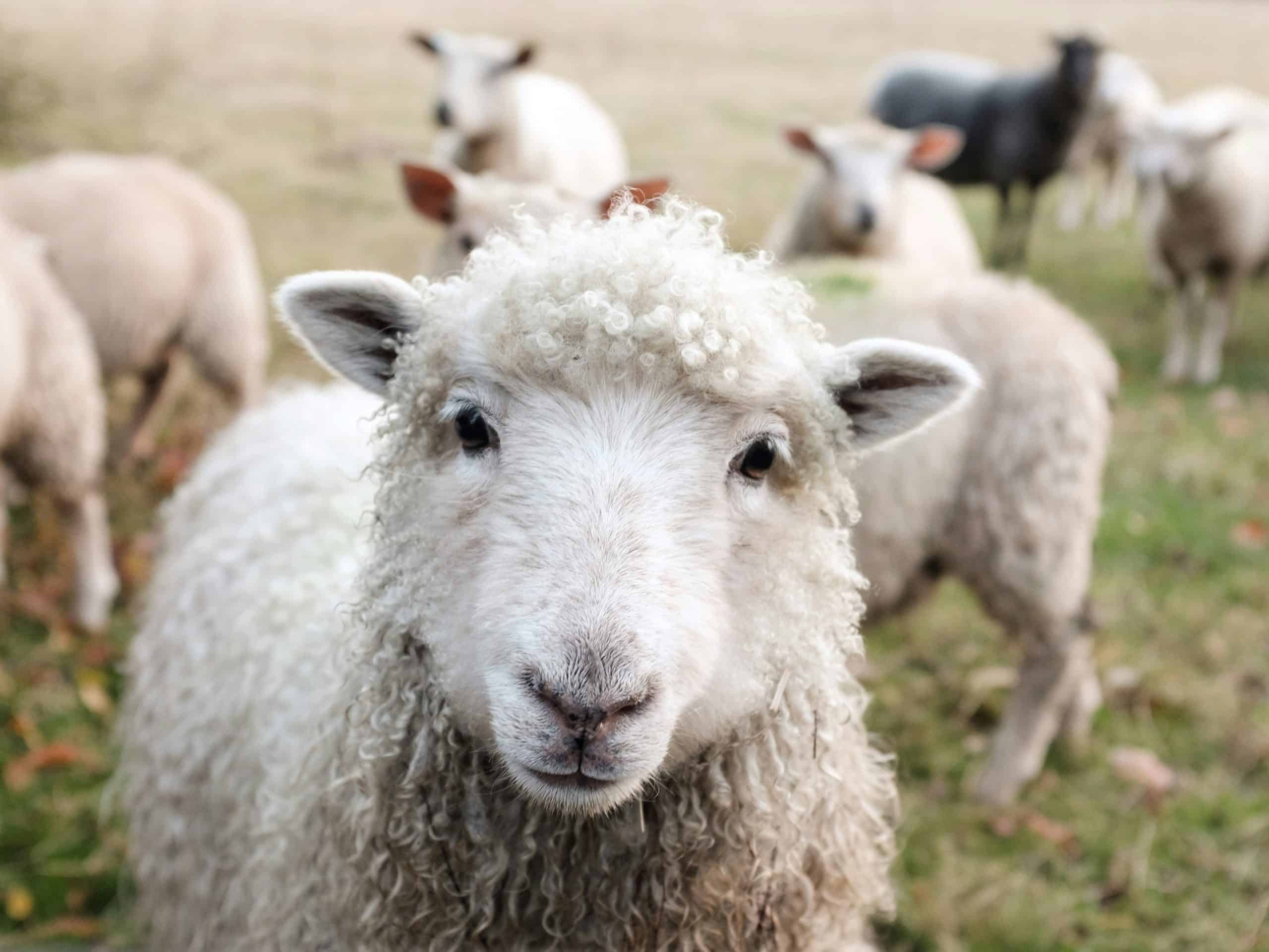If you've ever wondered how to transform your adorable puppy into a capable service dog, look no further. In this article, we will guide you through the process of training your puppy to become a service dog. Whether you are seeking to provide support to someone with a disability, assist in therapy settings, or simply want to enhance your dog's skills, we will provide you with practical tips and insights to help you achieve your goal. So, let's embark on this journey together and unlock the incredible potential within your furry friend.

This image is property of images.unsplash.com.
Understanding the Role of a Service Dog
A service dog is a specially trained canine that assists individuals with disabilities or specific medical conditions. They are trained to perform various tasks and functions to help their owners navigate their daily lives and increase their independence. A service dog is more than just a pet; they are a working partner and an invaluable support system.
What is a service dog?
A service dog is a highly trained canine companion that is specifically trained to perform tasks that mitigate the impact of a person's disability or medical condition. These dogs undergo rigorous training to develop the skills and behaviors necessary to assist their owners. They are trained to be calm, responsive, and well-behaved in various environments and situations. Unlike other types of assistance animals, service dogs are granted legal protection and have access to public places.
What tasks can a service dog perform?
Service dogs are trained to perform a wide range of tasks depending on their owner's specific needs. Some common tasks include:
- Guiding individuals with visual impairments and assisting with mobility.
- Alerting individuals with hearing impairments to sounds.
- Retrieving objects, opening doors, or turning on lights for individuals with mobility limitations.
- Providing stability and balance support for individuals with physical disabilities.
- Alerting individuals with medical conditions, such as diabetes or epilepsy, to potential health emergencies.
- Performing tasks that help individuals with psychiatric disabilities, such as interrupting self-harm behaviors or providing deep pressure therapy during anxiety or panic attacks.
The tasks performed by a service dog are tailored to meet the individual needs of their owner, providing assistance and support in a variety of ways.
The benefits of having a service dog
Having a service dog can significantly enhance the quality of life for individuals with disabilities or medical conditions. Some of the key benefits of having a service dog include:
-
Increased Independence: Service dogs are trained to perform specific tasks that allow individuals to complete daily activities with greater ease and independence.
-
Emotional Support: Service dogs provide companionship, loyalty, and emotional support to their owners, reducing feelings of loneliness or isolation.
-
Safety and Security: Service dogs can help alert their owners to potential dangers or health emergencies, providing a sense of safety and security.
-
Improved Social Interaction: Service dogs can act as an icebreaker in social situations, opening up opportunities for increased social interaction and connection.
-
Enhanced Confidence: The presence of a service dog can boost confidence and self-esteem in individuals, knowing they have a reliable companion by their side.
-
Stress Relief: Interacting with a service dog has been shown to reduce stress levels and promote relaxation, benefiting both physical and mental well-being.
-
Improved Mobility: Service dogs can assist with mobility tasks, making it easier for individuals to navigate their surroundings and participate in daily activities.

This image is property of images.unsplash.com.
Choosing the Right Puppy
When considering a puppy as a potential service dog candidate, there are several important factors to take into account. These factors will help ensure that the puppy possesses the necessary qualities and characteristics to succeed in service dog training.
Research different dog breeds
Different dog breeds have different temperaments, energy levels, and characteristics that may be more suitable for specific tasks or individuals. Researching different breeds will help you identify which ones are commonly used as service dogs and which may be a good fit for your specific needs.
Consider temperament and personality traits
The temperament and personality traits of a puppy are crucial in their suitability for service dog work. Look for puppies that are alert, confident, adaptable, and have a natural inclination to work and please their owners. It is also essential to find a puppy with a stable and calm temperament to handle the potentially stressful situations encountered during service dog work.
Evaluate health and genetic factors
Before selecting a puppy, make sure to assess their health and genetic factors. A healthy puppy with no significant genetic issues or hereditary conditions is more likely to succeed in training and have a longer working life. Consult with a veterinarian to obtain a thorough health evaluation, including screenings for common breed-specific health concerns.
Socializing Your Puppy
Proper socialization is crucial for a service dog candidate. It helps them develop confidence, adaptability, and the ability to handle various situations and environments. Here are some key steps to socialize your puppy effectively:
Expose your puppy to various environments
Introduce your puppy to different environments, such as busy streets, parks, shopping centers, and public transportation. Gradually increase the level of stimulus and exposure to help them become comfortable in various situations. Exposing them to different surfaces, noises, and visuals will help build their confidence and reduce fear or anxiety.
Introduce them to different people and animals
Socialize your puppy with a wide range of people, including children, adults, and individuals with disabilities or medical conditions. This exposure will help them become comfortable interacting with different individuals and learn appropriate behavior around them. Additionally, introduce your puppy to other well-behaved dogs to promote positive socialization and polite interaction.
Provide positive experiences to build confidence
Ensure that your puppy has positive experiences in every new situation or interaction. Reward them with treats, praise, and affection when they exhibit calm and appropriate behavior. This positive reinforcement will help build their confidence and create positive associations with different environments, people, and animals.

This image is property of images.unsplash.com.
Basic Obedience Training
Basic obedience training is a fundamental step in the development of a service dog. Teaching your puppy simple commands lays the foundation for more advanced training and helps establish a strong relationship and communication between you and your dog. Here are some essential aspects of basic obedience training:
Teaching simple commands like sit, stay, and come
Start training your puppy with basic commands such as sit, stay, come, and lie down. Use positive reinforcement techniques, like treats and praise, to encourage the desired behavior. Consistency and repetition are key to reinforcing these commands until your puppy reliably responds to them.
Using positive reinforcement techniques
Positive reinforcement is a highly effective training method that involves rewarding desired behaviors and ignoring or redirecting unwanted behaviors. Use treats, praise, and playtime as rewards to motivate and reinforce your puppy's good behavior. This positive approach fosters a strong bond between you and your puppy and encourages them to engage in desirable behaviors willingly.
Consistency and patience in training
Consistency and patience are vital during the training process. Establish a regular training routine and practice commands in various environments to reinforce your puppy's understanding and responsiveness. Remember, puppies learn at their own pace, so be patient and adapt your training methods to suit your puppy's individual needs and abilities.
Advanced Training for Service Tasks
Once your puppy has mastered basic obedience commands, it is time to move on to advanced training for specific service tasks. This phase involves identifying the particular tasks your service dog will perform and training them accordingly. Consider the following steps to ensure effective advanced training:
Identifying specific tasks for your service dog
Determine the specific tasks that your service dog will need to perform to assist you with your disability or medical condition. Consult with a professional trainer or an organization specializing in service dog training to ensure the tasks are appropriate, achievable, and tailored to your individual needs.
Training methods for specialized tasks
Advanced training for service tasks will require specialized training methods. Depending on the tasks, this may involve specific scent detection, retrieval techniques, or behavior shaping exercises. It is essential to work closely with a professional trainer experienced in service dog training to develop a training plan that is effective and compassionate for your dog.
Working with a professional trainer if needed
If you are unfamiliar with advanced training techniques or require additional guidance, consider working with a professional trainer specializing in service dog training. They can provide expert knowledge, personalized training plans, and ongoing support to ensure that your service dog is adequately trained to perform their designated tasks.
Public Etiquette and Manners
When your service dog is fully trained and ready to accompany you in public, it is essential to focus on public etiquette and manners to ensure a positive experience for both your dog and the general public. Here are some key considerations:
Teaching your dog to be calm in public places
Public places can be filled with distractions and unfamiliar stimuli. Train your service dog to remain calm, focused, and well-behaved in public settings. Practice in various environments, gradually increasing the level of difficulty and distractions. Reward and reinforce good behavior, and use redirection techniques if your dog becomes anxious or distracted.
Practicing good leash manners
A well-mannered service dog should exhibit good leash manners. Train your dog to walk politely on a leash, without pulling or lunging. Teach them to walk on your side and respond to leash cues promptly. This will ensure safety and ease of handling in public places.
Responding appropriately to distractions
Service dogs encounter various distractions in public settings. Train your dog to remain focused on their tasks and ignore external stimuli. Basic obedience commands, such as "leave it" or "ignore," can help redirect their attention back to their designated tasks. Consistent practice and positive reinforcement will strengthen their ability to handle distractions effectively.
Emotional Support and Bonding
In addition to their service-related tasks, service dogs provide emotional support and form a deep bond with their owners. Nurturing this bond and addressing your dog's emotional needs are crucial for their overall well-being. Consider the following:
Building a strong relationship with your puppy
Establishing a strong bond with your puppy is essential for successful service dog work. Spend quality time with your dog, engaging in activities like play, grooming, and relaxation. This strengthens the emotional connection between you and fosters a trusting and supportive relationship.
Recognizing and addressing emotional needs
Just like humans, dogs have emotional needs. Monitor your service dog's behavior and body language for signs of stress, anxiety, or fatigue. Allow them to rest, provide mental stimulation through enrichment activities, and ensure they have downtime to relax and recharge.
Providing mental stimulation and playtime
Service dogs are intelligent and benefit from mental stimulation and playtime. Incorporate puzzle toys, obedience games, and interactive play sessions into their daily routine. This not only provides mental exercise but also strengthens the bond between you and your dog.
Healthcare and Regular Check-ups
Maintaining your service dog's health is crucial for their well-being and the success of their service dog role. Here are some essential healthcare considerations:
Maintaining a healthy diet and exercise routine
Provide your service dog with a balanced and nutritious diet. Consult with your veterinarian to determine the appropriate type and amount of food for your dog's individual needs. Regular exercise is also vital to keep your dog physically fit, mentally stimulated, and prevent behavioral issues.
Scheduling regular vet visits and vaccinations
Regular veterinary check-ups and vaccinations are essential to ensure your service dog remains healthy and free from preventable illnesses. Follow your veterinarian's recommended schedule for vaccinations and schedule routine check-ups to monitor your dog's overall health.
Addressing any health issues promptly
If you notice any changes in your service dog's behavior, appetite, or physical well-being, consult with your veterinarian promptly. Early detection and treatment of health issues are crucial to maintaining your service dog's quality of life and working capabilities.
Legal Considerations and Documentation
Navigating the legal aspects of owning a service dog is an important step in ensuring their rights, access, and acknowledgment. Familiarize yourself with the following considerations:
Understanding service dog laws and regulations
Research and understand the laws and regulations relating to service dogs in your specific region or country. Familiarize yourself with the rights and responsibilities associated with owning a service dog, including access to public places, transportation, and housing accommodations.
Obtaining necessary certifications and documentation
Depending on your location, there may be certification or documentation requirements for service dogs. Ensure you understand the necessary steps and obtain the appropriate certifications or documentation to ensure your service dog's legitimacy and access to public places.
Knowing your rights and responsibilities
Understanding your rights and responsibilities as a service dog handler is essential. Educate yourself on your rights to access public places with your service dog and familiarize yourself with guidelines for responsible ownership and behavior, such as cleaning up after your dog and keeping them under control at all times.
Continued Training and Support
Training is an ongoing process that continues throughout the life of a service dog. Consistency and reinforcement are key to maintaining their skills and ensuring their tasks are consistently performed. Here are some important points to consider:
Consistently reinforcing training and commands
Regularly reinforce your service dog's training and commands through practice and repetition. Continuously reinforce desired behaviors and refresh obedience commands to maintain your service dog's skills and responsiveness.
Joining support groups or communities
Joining support groups or communities for service dog handlers can provide valuable resources, guidance, and a sense of belonging. Connect with others who have similar experiences and learn from their knowledge and expertise.
Adapting training as your puppy grows and develops
As your service dog grows and matures, their training needs may change. Adapt their training plan to accommodate their developmental stages and any evolving tasks or responsibilities. Consult with a professional trainer to ensure that your service dog's training remains effective and up to date.
Training a puppy to become a service dog requires dedication, patience, and commitment. By understanding the role of a service dog, selecting the right puppy, providing socialization and training, addressing their emotional needs, maintaining their health, navigating legal considerations, and continuously supporting their training, you will set the foundation for a successful and fulfilling partnership with your service dog. Remember, with love, care, and proper training, your service dog can become an invaluable companion and support system in your daily life.


